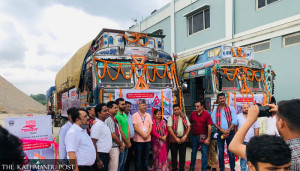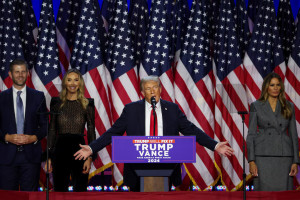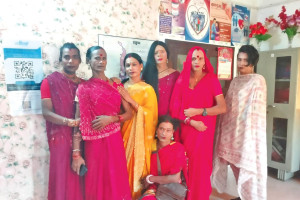Opinion
Looming deadline
The only real option for political parties is a constitution by January 22
Siddhartha Thapa
A year after the Constituent Assembly elections, the prospects of the constitution being promulgated on time remains uncertain. Despite repeated claims by politicians that they will deliver a constitution within the stipulated time frame—January 22—people have become increasingly wary of the political leadership’s commitment to the constitution-writing process. Last year’s historic elections saw over 70 percent voter turnout, demonstrating the Nepali people’s desire to see the promulgation of a democratic constitution. Equally strong were those voices that hoped that with the promulgation of a democratic constitution, Nepali politicians would usher the country into an era of development.
Power games
A year later, both constitution and development remain a distant dream. The failure of political parties to promulgate a constitution by January 22 could lead to the parties losing the trust of the people. What the political parties can’t afford now is another failure and their misguided belief of taking the people for granted.
The mood of the people can take a decisive turn, for which the political parties remain unprepared.
At the centre of problem that continues to jeopardise the constitution-writing process is, political parties remain predisposed to power games. Since 2006, when the second Janaandolan gave way to change, Nepal has had seven different governments. In simple words, political parties lack clarity and vision to take the political process towards its logical end. What we have been witnessing in Nepal is that political parties continue to engage in a game of political brinkmanship by singing one agreement after the other for the simple purpose of remaining in power. Even more bewildering is the constant changing of goal posts for ending the transition. The political parties must understand that the only real option left with them is to come to an understanding and promulgate a constitution within the time frame of January 22.
India’s role
India, Nepal’s closest neighbour, has continued with its policy of supporting Nepal’s democratic evolution, which began in earnest in 1950. In the name of democracy, Nepal has witnessed countless regime changes and the continuing instability poses challenges for an emerging new India—an India which has aspirations of becoming a serious world power. Nepal, with an untapped reserve of water resources, could be the engine propelling South Asia’s, and India’s, growth. An unstable Nepal with acute poverty ratios provides an ideal recipe for bringing together radical forces against Nepal’s democratic achievements. In this light, India’s policy of counseling political parties in Nepal in the direction of promulgating a democratic constitution remains the most prudent approach to ending Nepal’s transition towards a republic.
Nepal and India remain close not just because they are situated next to each other but also because the people of the two countries have maintained an intimate relationship for long. These have been exemplified by our shared history, culture, religions, collective belief in democracy, and our joint aspirations to fight poverty, South Asia’s biggest malaise. Sustainable, meaningful Nepal-India relations can only be characterised by the relationships the peoples of our two countries share. Therefore, the continued standoff between the political parties in Nepal requires India’s urgent attention.
Whatever political parties in Kathmandu and Indian policymakers in New Delhi decide next, the two countries will have to work more intimately than ever before in finding a durable solution towards ending Nepal’s protracted transition. As Indian Prime Minister Narendra Modi prepares to visit Kathmandu later this week to attend the Saarc Summit, all eyes are on him as Nepal struggles to find a solution to its problems.
Thapa is a political activist and development practitioner




 17.12°C Kathmandu
17.12°C Kathmandu










